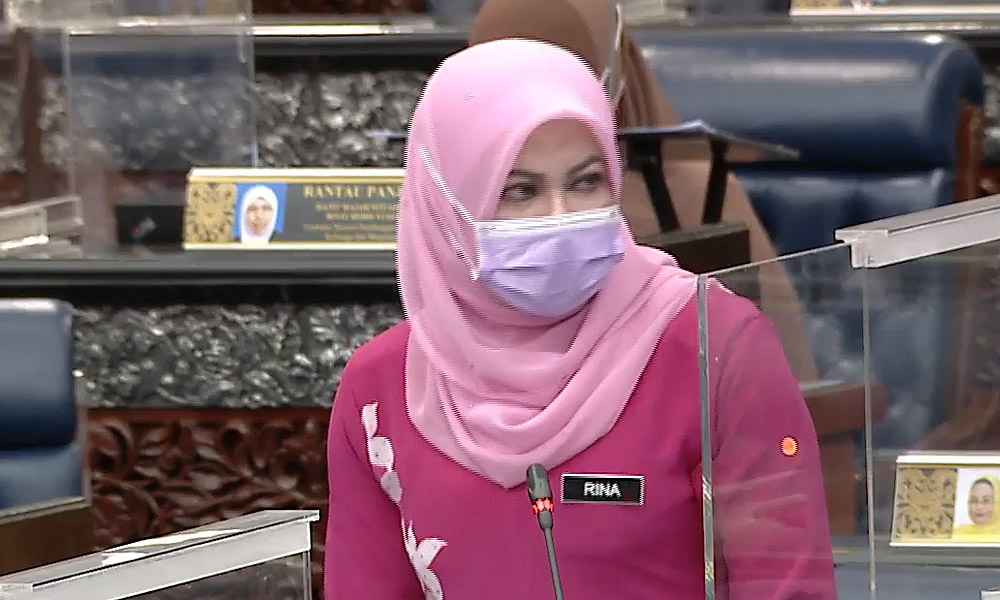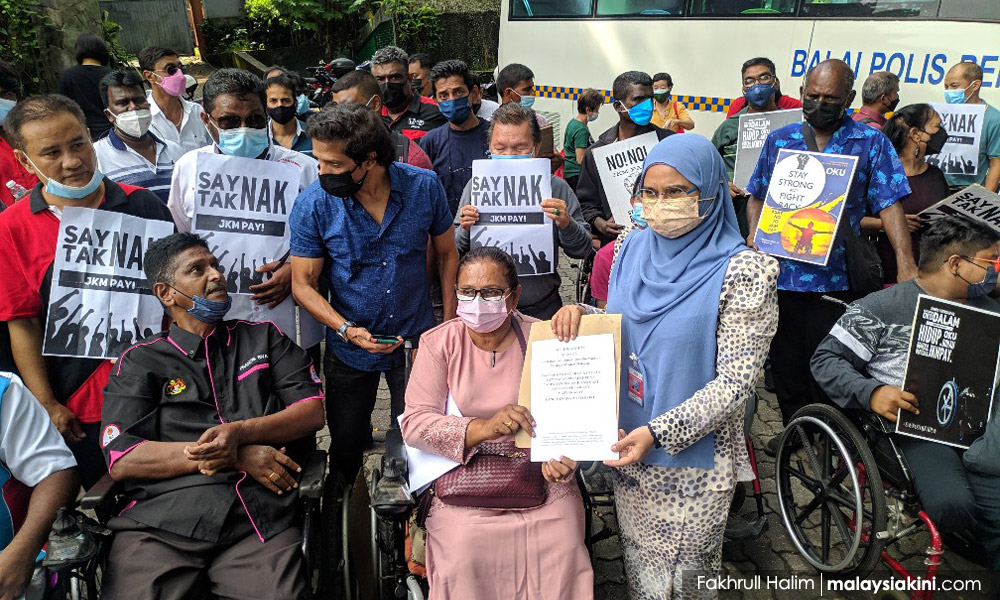Disabled groups in Malaysia have rejected the Social Welfare Department's cashless assistance payment programme (JKMPay) on the ground that the new cashless payment system will cause inconvenience to them.
They were also upset with little prior consultation made with the groups.
Independent Living and Training Centre Malaysia (ILTC Malaysia) president G Francis Siva said the new cashless payment system made lives more difficult for the disabled community.
The government should listen to voices about the difficulties the people need to go through if it cares about the fate of the underprivileged group, he said.
Malaysia Spinal Injury Association (Masia) secretary S Jeyaraj said he had given feedback on the idea to Women, Family and Community Development Minister Rina Harun.
However, she did not respond to the memorandum in two weeks as promised, he said.
Jeyaraj said the groups were invited to a meeting and were briefed on the advantages of JKMPay last week but were not given adequate time to ask questions.
Rina herself did not attend the meeting, he added.

“We stopped them (the officials) at the meeting, we said we were not interested in all the benefits. We just want the JKMPay to be stopped,” he said.
“They did not give us (adequate) time to ask questions, some of the questions raised were not answered as these questions could only be addressed by Rina herself, but the minister did not want to face us,” he said.
‘New system could deter abuse’
Under the cashless programme, cash aid for welfare recipients are split into two types of payments: half into a Bank Islam ATM card and the other in a card called JKMPay.
The amount in JKMPay can only be used in selected stores registered with Bank Islam.
Several disabled rights groups submitted a memorandum to Rina's ministry on Jan 25 to protest JKMPay.
Rina, however, defended the new system, claiming it could deter aid abuse.
She cited reports that the cash aids were used to buy cigarettes and used by family members to buy non-essential items.
Jeyaraj, however, said: “We have received the money for years, we know how to use the money.”
A visually impaired businessperson, T Ruken, urged the government not to trouble disabled people by limiting the purchase of certain items in certain shops.
He said the money may be needed by some of the disabled people for other purposes, such as dialysis treatment, house rent payments, utilities and children's education.
“The aid we received is small. Can the ministers live luxuriously (with the amount of aid we received)?” he said.
“We hope no more trouble for the disabled people as we are already living in hardship. Try to live our lives for one day and you know what we have been going through,” he said.
Earlier today, the groups mobilised a protest near Parliament in Kuala Lumpur, calling for the prime minister to abolish the new system. - Mkini


No comments:
Post a Comment
Note: Only a member of this blog may post a comment.